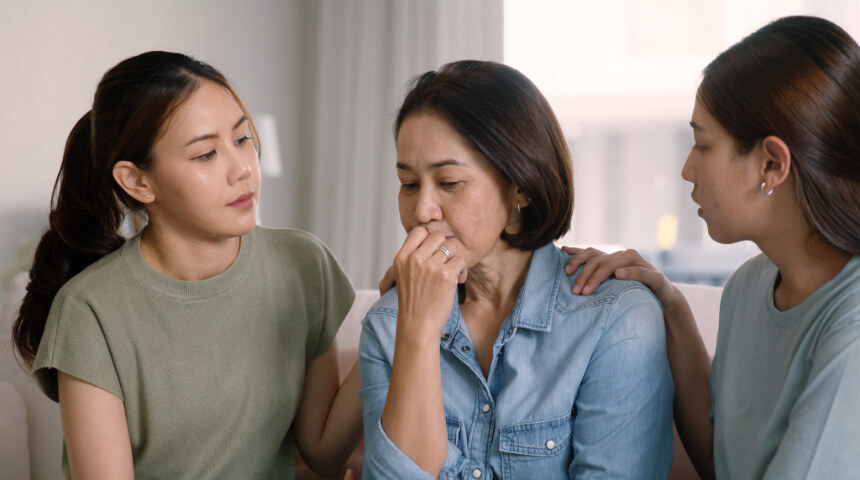You may have seen the shirts that say “I’m not a regular mom — I’m a wine mom,” the wine glasses with the words “mommy juice” printed in fancy type or the memes that make light of moms who day-drink on playdates.
Wine mom culture touts drinking alcohol to cope with the demands of everyday life. Kids stressing you out? Drink. On a playdate with fellow moms? Drink. Exhausted after a long day? Another excuse to have a drink.
Mothers are inundated with the message that drinking wine comes with being a parent. And while it may seem harmless, wine mom culture has become a major public health concern, says Dr. Natasha Spencer, an OB-GYN with Orlando Health Physician Associates.
“Enjoying an occasional glass of wine with your friends or spouse is OK. But pay attention to how much and how often you are drinking,” Dr. Spencer says. “One or two drinks at the end of the day quickly adds up to a dozen drinks over the course of a week.”
The Big Picture
The Centers for Disease Control and Prevention (CDC) estimates that 1 in 6 adults binge drink once a week. For women, binge drinking is defined as consuming four or more alcoholic beverages on the same occasion on at least one day in the past month. A 4-ounce glass of wine is considered one drink.
The “mommy juice” mindset can turn into a drinking problem quickly. A 2017 study found that problem drinking increased by more than 80 percent among American women between 2002 to 2013.
Wine mom culture may seem like fun, but it can lead to dependence on a nightly glass or two. Consistent drinking can lead to less diligence when supervising play and can cause long-term health damage.
Long-Term Effects
The problem for women is they tend to metabolize alcohol more slowly than men, which can lead to getting drunk faster. That, in turn, causes the effects of alcohol to last much longer. That’s why “moderate use” of alcohol is considered to be one glass of wine for women.
Women are more likely to develop these long-term health conditions and issues from drinking alcohol:
- Brain damage. Cognitive decline and brain shrinkage because of alcohol consumption develops more quickly for women than men.
- Cancer. Regularly drinking alcohol is linked to an increased cancer risk, particularly breast, mouth, throat, esophagus, liver and colon cancers.
- Heart disease. Women are at increased risk for heart damage from prolonged alcohol consumption.
- Hormonal imbalances. Alcohol can affect hormone production and accelerate some menopausal symptoms.
- Liver damage/disease
- Peptic ulcers
- Osteoporosis
Healthier Options for Parenting Stress
Parenting can be stressful and exhausting, even on the best of days. But there are ways to relax and de-stress without turning to alcohol. Instead of drinking, consider trying healthy outlets for stress relief, including:
- Exercising
- Developing a hobby
- Playing a musical instrument or listening to music
- Reading
- Taking time out for yourself each day
When Is Drinking a Problem?
If you have depression, anxiety or other mental health conditions, it may be tempting to turn to alcohol to relax. But drinking wine to alleviate the symptoms of a mental health condition can worsen your struggles and may lead to a substance use disorder.
Overcoming the urge to drink alcohol is not always easy, but it is possible. If you think you may have a drinking problem, there are resources available to help. The SAMHSA Help Line — (800) 662-HELP (4357) — is open 24/7 for advice, information and treatment recommendations.
Talk with your healthcare provider if you are worried that you may be drinking too much or abusing other substances. They can put you in touch with the appropriate resources and referrals for counseling, if needed.



